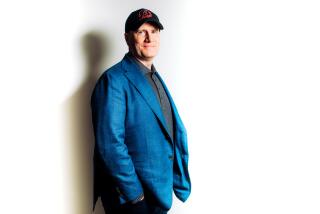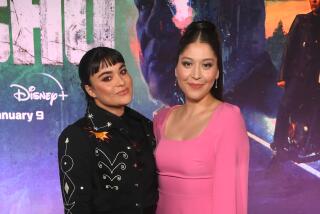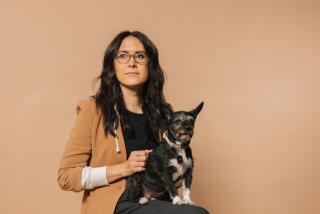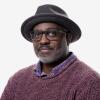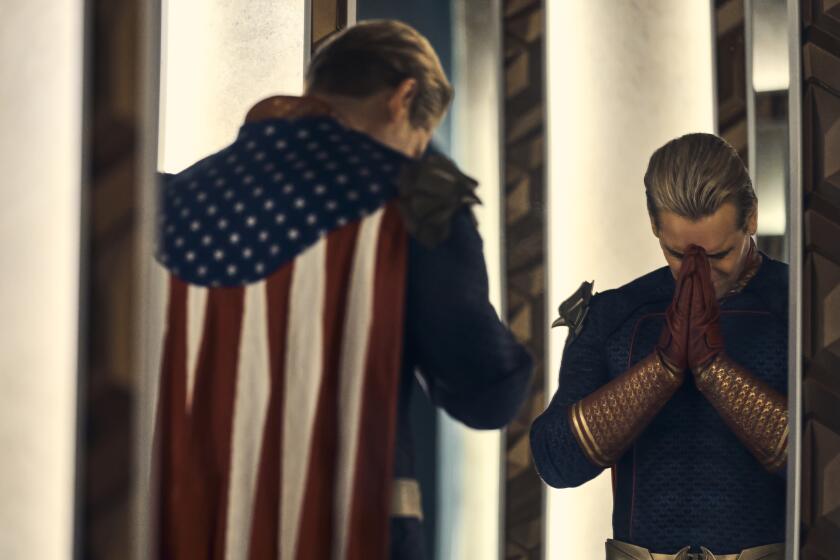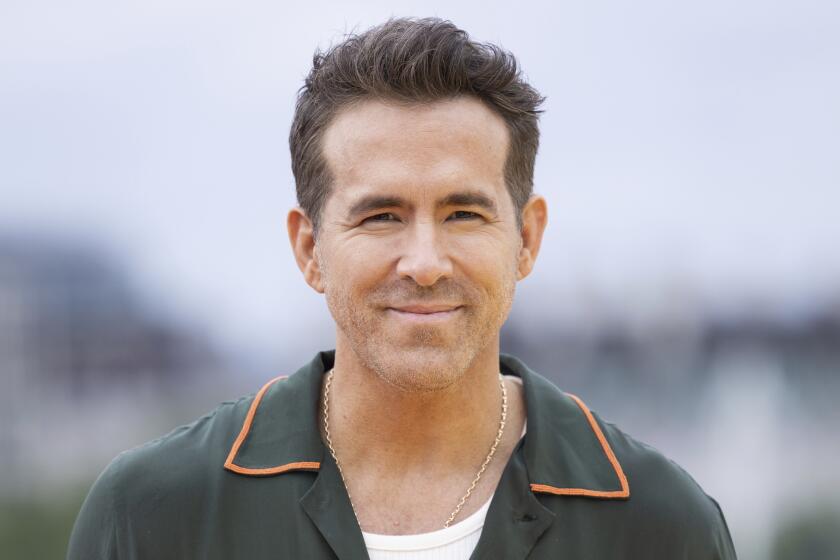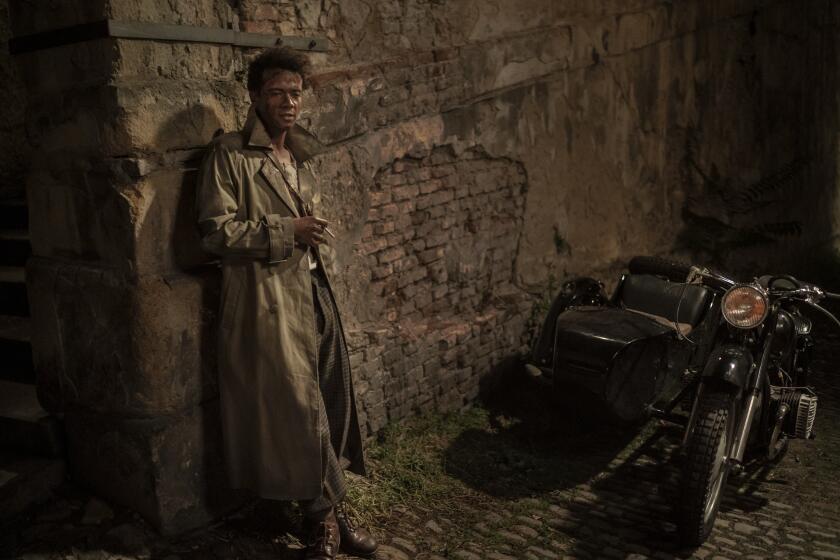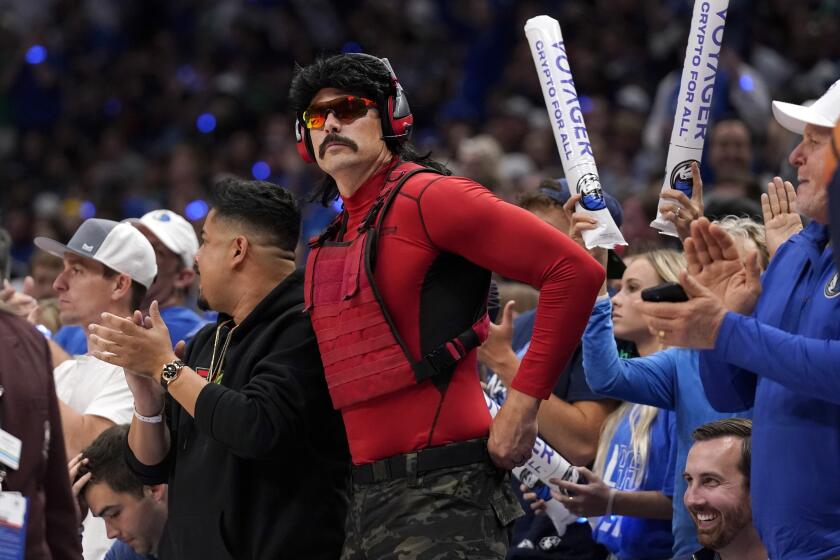Chadwick Boseman explains how he came up with Black Panther’s accent from the fictional land of Wakanda
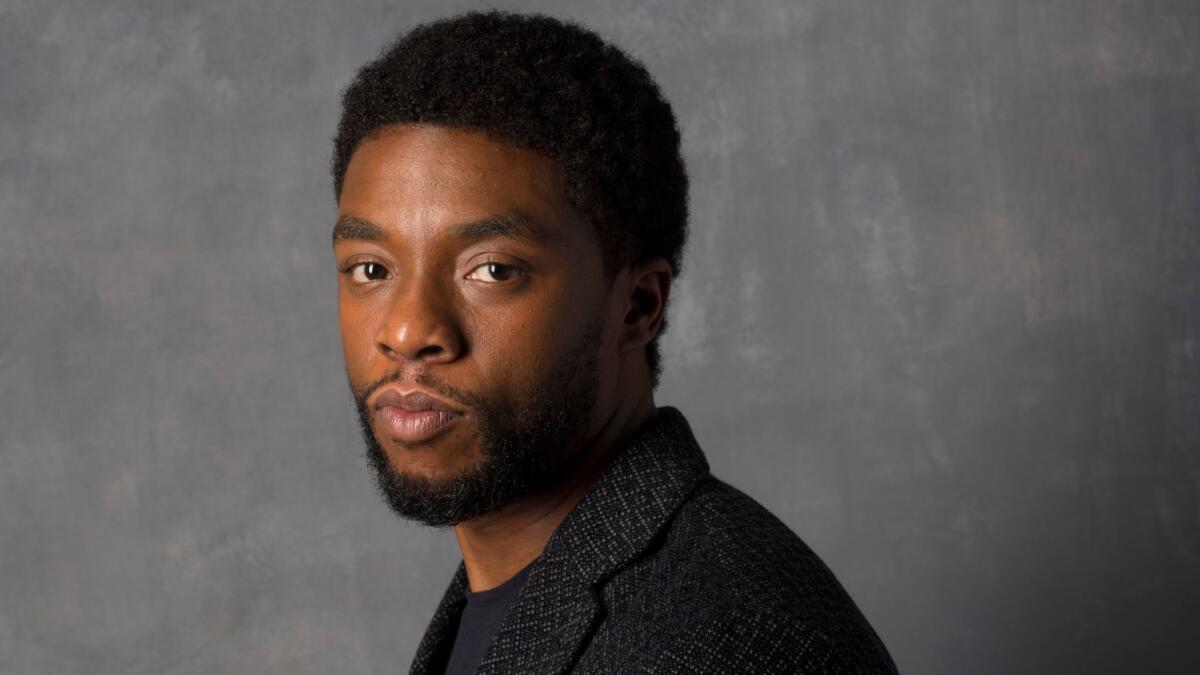
When Chadwick Boseman signed on to play T’Challa, the Black Panther, in Marvel’s “Captain America: Civil War,” he knew that he was taking on a role that was not only important to fans of Marvel Comics — a longtime and popular Avenger who is one of the best fighters and tacticians in all of comics — but a role as the first black superhero, which itself represents a certain pride and something greater than himself.
But he’s done this type of thing before.
In “42,” he played Jackie Robinson. In “Get On Up,” he played James Brown. In “Marshall,” he took on the role of Thurgood Marshall. There’s a pattern of Boseman becoming influential black leaders in his films, and with the pedigree of the fictional Black Panther — super-smart scientist and king of the unconquerable African nation of Wakanda — Boseman is continuing that acting legacy.
T’Challa was introduced by Stan Lee and Jack Kirby in Fantastic Four No. 52 (July 1966) at a time when race relations were charged.
“Captain America: Civil War,” which was released on DVD this month, introduced audiences to Boseman’s Panther, and a “Black Panther” movie (planned for 2018) will further familiarize audiences with the hero. We caught up with the busy actor to ask a few questions about the Black Panther and how he helped bring him to life.
How much did you know about Black Panther going into “Captain America: Civil War”?
I mainly knew the Reginald Hudlin run on “Black Panther,” and I knew the original Jack Kirby-Stan Lee version. So, so good. Reading for the movie, though, I basically tried to cover everything. Going over the original versions, Hudlin, the Christopher Priest versions … I read as much as I could at the time. Pretty extensive research.
Did you come away from that with a favorite moment in the comics?
I love the battles with Killmonger in Christopher Priest’s [run]. I love any complex story that makes you think, not to be too specific. Any time he makes you think he lost when he actually won -- that’s my favorite aspect of the character. There’s one moment when he was fighting Mephisto, and he basically lures him into a den where his ancestors, who were all Panthers, were there. So he’s fighting with his ancestors behind him. That’s one of my favorites and a beautiful moment.
Much of Panther’s story was set up in “Civil War.” How much of it directly relates to what your character will go through in the new movie?
I would say all of it leads to … umm, you know it’s funny. We’re deep into this right now. I know now more of what I can’t say! But all of it connects.
Tangent question, but is it hard to turn the accent on and off? And what is it based on?
Is it hard? No, it’s not necessarily hard to turn it on and off. Any time you’re using an accent you want to speak in that accent as much as you can, and I think when you stop doing the character, you just get away from the accent. I’m not in a place where we’re actually shooting, so I don’t generally walk around going into restaurants speaking in the accent. But every once in a while, if I can go to a place where people don’t recognize me or I’m in disguise, I might try stuff out. That’s how you stay fresh with it.
As far as where it comes from, obviously, it’s a fictional African country, but I wanted to base it in reality. I had done a movie before “Civil War” called “Message from the King,” and I’d gone to South Africa a couple of times for research and for filming that movie. While I was there, I found a dialect coach, same coach I’m using now for “Civil War.” It’s primarily based in the Xhosa dialect, but it’s not that. He had extensive knowledge of various places.
We looked at specific people from Kenya, Ethiopia, Sierra Leone — which is actually where my ancestors are from — but I wanted to use whatever would inspire me for certain sounds. That added to it. Because we now have Danai [Gurira] and Lupita [Nyong’o] who have a more direct connection to the continent; they will bring their own flavor to what’s done. I’ll be listening to them and listening to what they do and continuing to create, because again, this is a fictional thing but you want it to feel real.
For me, Wakanda has never been conquered. So I wanted to make sure that he didn’t speak like ... well, at one time they were thinking he’d have a European accent or an American accent. I said that would not be fine because if we did that, that would be saying that they had been colonized. That was something that I wanted to make sure happened, that we stuck to that in the character.
In collaborating with the Russos versus Ryan Coogler: How do their interpretations of the character differ, and does it affect how your approach playing him?
I don’t know that there’s a difference. What we wanted to do when we were doing “Civil War” was to leave room for the next director who was going to be working on “Black Panther” — and we didn’t know who that was going to be when we started the process. It was to help and not do harm. It was basically up to myself and the writers and producers to come up with things and small references to a Kemetic tradition or Egyptian tradition, because that coincides with the idea of what Wakanda would be. It has an ancient past and history, wealth. But there were various different things that I was pulling from that I knew I couldn’t directly apply because I’m not the director of “The Black Panther.” We had to basically leave the mystery there, leave the mystique, but also leave it open so that Coog could come in and do his thing.
And working with Ryan Coogler has been …?
I haven’t really worked with Ryan before. We haven’t been through the fires yet, so I can’t really answer this question.
Do you think Ta-Nehisi Coates, current writer of the Black Panther comic series, might visit the set?
We haven’t started shooting yet; we’re just in prep. Whether or not Ta-Nehisi will come to the set is unknown. I hope he does. I’ve known him for years and it would be great to see him. I don’t know, though, if he’ll come.
Is there any action or dialogue, both in terms of DVD extras or scenes that didn’t make it onto the screen for “Civil War,” that you would have liked to have seen?
In terms of scenes that we shot, most of it ended up onscreen. As far as extras, there’s a scene with Black Widow that didn’t end up on screen, but you’ll see it. There’s probably some small things, an angle here or there, that was cut and didn’t end up in the movie, but there’s nothing that made me go “Man, I don’t believe they cut that!” I can think of whole games from “42” where I wished that they had put that game in there.
You’ve played many characters that have strong roots in defining certain aspects of African American culture and history — Jackie Robinson in “42,” James Brown and now even T’Challa. Is there a characteristic that binds them all and draws you to them?
I don’t know if there’s one thing that connects them all. All of them are leaders in some way. James Brown was a trendsetter in music, a taste-maker in music. Creating his own sound — he’s an originator. The same thing is true of Jackie Robinson — the first to play in that baseball world. Thurgood Marshall, first Supreme Court justice. There’s that “first” thing that you can apply. They’re sort of mavericks, taste-makers, trendsetter, setting precedents. With Marshall, you’re talking about [one of the first black] attorneys. With Black Panther, the first African character in a comic book, which is a tremendous thing as well. As far as who those people are, they’re leaders.
Am I like that? I’m just playing them. That’s for somebody else to really explore, but I’m incredibly blessed to be able to do that. I know that that’s not a normal thing for this industry, and hopefully it helps to change that fact. If it does, then you can put me in that category.
See the most-read stories in Entertainment this hour >> »
Follow me on Twitter: @Storiz
More to Read
The biggest entertainment stories
Get our big stories about Hollywood, film, television, music, arts, culture and more right in your inbox as soon as they publish.
You may occasionally receive promotional content from the Los Angeles Times.
